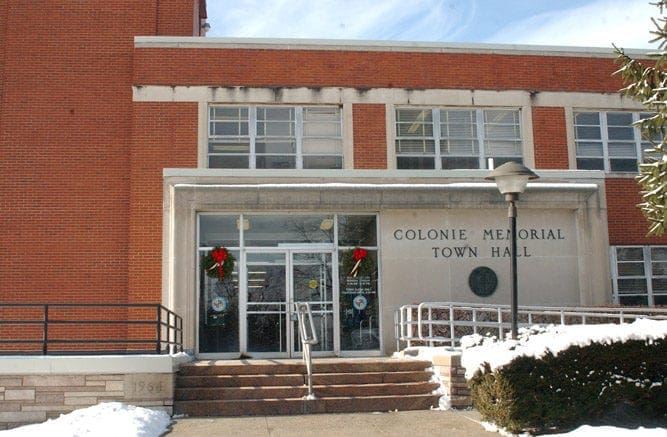The Town Board unanimously passed changes to a law that would limit the length of stay times in area motels and hotels, but not without some resistance. Town Board members approved the amendments at its meeting Thursday, Feb. 26, after months of revision and public comment. The changes restrict the amount of time a person can stay in a boarding facility to 28 consecutive days for safety reasons. However, the public still had concerns about the rights of those currently living in these facilities. Board member Brian Haak said that the amended law, while not a perfect solution to the issue of using motels and hotels as permanent residence, would allow the problem of homelessness to not be neglected. “The issue has to be revisited every 28 days,” said Haak, “so people are not forgotten in the shadows.” On top of the six-month grace period given by the Town of Colonie in the laws, hotel and motel owners will also have about another month as the law is processed by the state. Within this time, owners can help current residents using their facilities permanently find more suitable housing. Once the amendments fully come into effect, a stay in a boarding facility will be limited to 28 consecutive days, unless the unit is extended stay. The restrictions will not affect people checking into hotels who can provide proof of permanent residence elsewhere. The town attorney’s office, after concern from hotel and motel owners, also added a humanitarian component. It states that in extraordinary circumstances, the owner and occupant can apply to the Town Board, in writing, a request for an extension to the 28 days once the law takes effect. The application must show “clear and convincing evidence” of extraordinary circumstances and what measures have been taken to find permanent housing elsewhere. “This law helps us to really break the problem down into much more manageable parts,” said Town Supervisor Paula Mahan. Having people apply for an extension with the town will both give board members more discretion with each circumstance and allow the town to put its resources to better use, according to Mahan. However, Albany County Legislator Tim Nichols, who spoke at the Feb. 12 board meeting, still said he saw no need for the law. “The problem is, that this is actually a shameful law. It’s discriminatory. It picks on people who can’t take care of themselves,” he said. Mahan said the intent of the law was not to kick people out on the streets after 28 days, nor was it discriminatory. She said the humanitarian amendment would allow the town to better advocate for proper housing for those who need it, like families with children in school. “We have been advocating for better living conditions…. We have people who are working, and they can’t afford apartments, or, for whatever reason, don’t know what’s in the area, what’s available and things like that. This law is to protect the safety, the health and well-being living of those in these places,” said Mahan. Nichols said that some people may not understand the process needed to apply for extraordinary circumstances. The application would also put another added burden onto people who are already in dire circumstances, he said. “This isn’t solving the problem of bad hotel owners. You don’t tell people to leave their living situation because you’re mad at the motel owner. You go after the motel owner,” said Nichols. The revised law would also allow the town to pinpoint issues to work with county officials on resolving, according to Mahan. While board members acknowledged the need for affordable housing was an underlying issue, the laws were a start to preventing a potential tragedy, like a fire, with substandard living conditions for those living in hotels and motels. “For all too long, the response to what has been the need for affordable housing, or to take care of the homeless, is to put them away in a room. Find a room in a motel and leave them there. This law prohibits that policy from now on forward in the Town of Colonie,” said Haak.
Motel law amendment approved
Leave Comment



